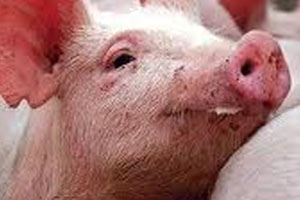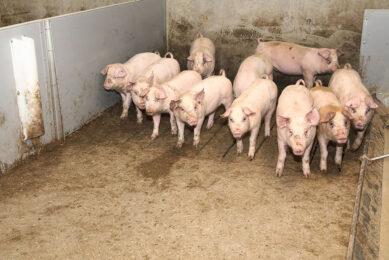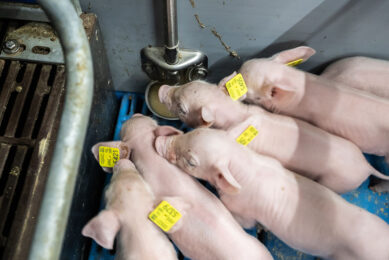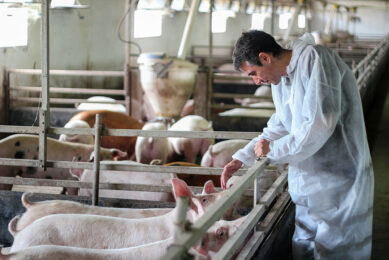Pigs found to carry carbapenem-resistant bacteria

A novel type of antibiotic resistant bacteria has been causing worries in the German livestock industry. The bacteria, resistant to carbapenems, has been found in poultry and pigs.
Carbapenems are usually considered to be last-line antibiotics for hospitalised patients suffering from severe microbial infections.
Until now, it used to be possible to combat resistant ESBL and MRSA bacteria by using carbapenems.
Prof Dr Dick Mevius, Utrecht University, the Netherlands, recently expressed his worries about this development. The type of resistance is simply exchangeable between different types of bacteria.
Recent publications in 2012 and 2013 by the German Federal Institute for Risk Assessment (BfR) pointed to the discovery of resistant E.coli at a pig farm and resistant Salmonella enterica at two finishing pig farms as well as a broiler farm. Mevius said he fears these carbapenemases will get into the food chain.
So far it has been unclear how this type of resistance has entered the livestock business, as these types of antibiotics are not permitted for use in animal husbandry agriculture. In one of the cases, a sewer was located in the vicinity of a farm. It is thought that resistance may have been literally blowing into the farm from the sewer.
Up until now, the problem of carbapenem resistance had only been a problem of humans, mostly by ignoring prudent use and unhygienic circumstances. Carbapenem-resistant infections have recently been found to show a spike.
 Beheer
Beheer








 WP Admin
WP Admin  Bewerk bericht
Bewerk bericht